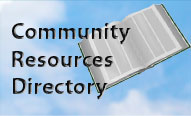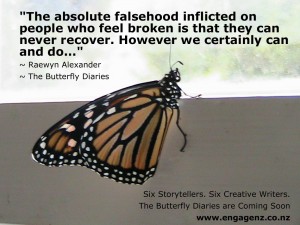Thanks to iTunes U, thousands of students, professionals and curious laypeople around the world now have access to free psychology lectures.
Find out more on the APA website
APA give the following sampling of some of the psychology courses available on iTunes U. To access the courses, download the iTunes app or go to the iTunes store.
University of California, Irvine
Instructor: Daniel Stokols, PhD, chancellor’s professor of social ecology in the departments of psychology and social behavior, and planning, policy and design
Why tune in? Environmental psychology is about how we’re influenced by our everyday surroundings, including our offices, dorm rooms, commutes and exposures to nature. Stokols’s course addresses a variety of issues, including how the design of an apartment influences the formation of friendships, why people litter and the consequences of a society suffering from information overload. “Today, there’s so much concern about issues of sustainability, public health, pollution and population growth that viewing the world as a system and in ecological terms … is very timely,” says Stokols.
Fun fact from the course: People are more likely to throw away trash in a garbage can that’s painted decoratively than one that’s plain.
American University
Instructor: Brian Yates, PhD, professor of psychology
Why tune in? Yates originally intended iTunes U to serve as a resource for his own students, who are challenged to evaluate and change their own habits to promote health. They assess their personal risks, identify what they want to change and maintain, and set up a system of “triggers and flags” that will signal when it’s time to seek professional help in the future. The material has caught on — his course is consistently one of the top 10 downloaded from iTunes U and had more than 35,000 enrollees in October. “The field is very exciting. It’s young, dynamic, it affects every one of us,” says Yates. “That’s what psychology is supposed to do.”
Surprising fact from the course: One study of HIV-positive men found that those who tended to blame themselves for negative outside events experienced a significantly faster decline in helper T cells, important for maintaining immune function.
University of California, Berkeley
Instructor: Dacher Keltner, PhD, professor of psychology and director of Berkeley’s Social Interaction Laboratory
Why tune in? Keltner’s course has always been well-attended, so it was Berkeley’s idea to make it available to the public through iTunes U. The course details fascinating research on art and emotional expression, cultural similarities and differences in non-verbal expressions, and emotion’s neurobiological and hormonal underpinnings. “The study of human emotion is new, it’s growing and it’s relevant to people around the world,” says Keltner.
Interesting fact from the course: People can usually accurately convey — and interpret — emotion through nothing more than a brief touch. But in a study conducted by Keltner and his team, there were two instances in which the “touchee” was clueless: When women tried to convey anger to men, and when men tried to communicate sympathy to women. “That fits how emotions are gendered, and how families socialize women into the ways of sympathy and men into the ways of anger that might account for these differences,” he says.
Yale University
Instructor: Fred Volkmar, MD, chief of child psychiatry at Yale-New Haven Children’s Hospital
Why tune in? A rotating panel of mental health experts lead this course on the latest autism research, including a lecture by Volkmar’s co-instructor, James McPartland, PhD, that details how brain electrophysiology is informing researchers’ understanding of social perception in autism. “This is a happy story in the sense that outcomes seem to be getting better with early intervention and protection,” says Volkmar, who estimates the course’s first lecture has gotten about 21,000 views on iTunes.
Interesting fact from the course: One of the early theories of autism speculated that intelligent parents were more likely to have autistic children. But the idea was likely a selection bias: The people who knew about what’s now known as autism were predominantly researchers or other academics. “Now,” he says, “you see children with autism everywhere … from all social classes, from every continent on the globe — and it looks remarkably the same. What’s different is how people respond to it.”
Missouri State University
Instructor: Todd Daniel, professor of psychology and director of Missouri State’s RStats (Research, Statistical Training, Analysis and Technical Support) Institute
Why tune in? Daniel is a former radio producer who uses his storytelling skills to bring psychology to life in this introductory course. The course, which is Missouri State’s most downloaded podcast, begins with the “Myth of Psyche” and takes the listener through an engaging overview of psychology including lectures on dreaming and hypnosis, a health course dubbed “Why College Is Bad for You” and the truth about Freud. “After I do a lecture in front of a seated class, when it’s over, it’s gone like a vapor,” says Daniel. “I wanted to create something more permanent.”
Surprising fact from the course: In 1964, a man named Randy Gardner went 264 hours, or about 11 days, without sleep. He was trying to prove that sleep wasn’t all that important, but the changes noted in his cognitive and behavioral functioning proved otherwise — a lesson Daniel tries to impart on his students. “Your best strategy is to get a good night’s sleep,” he says.








